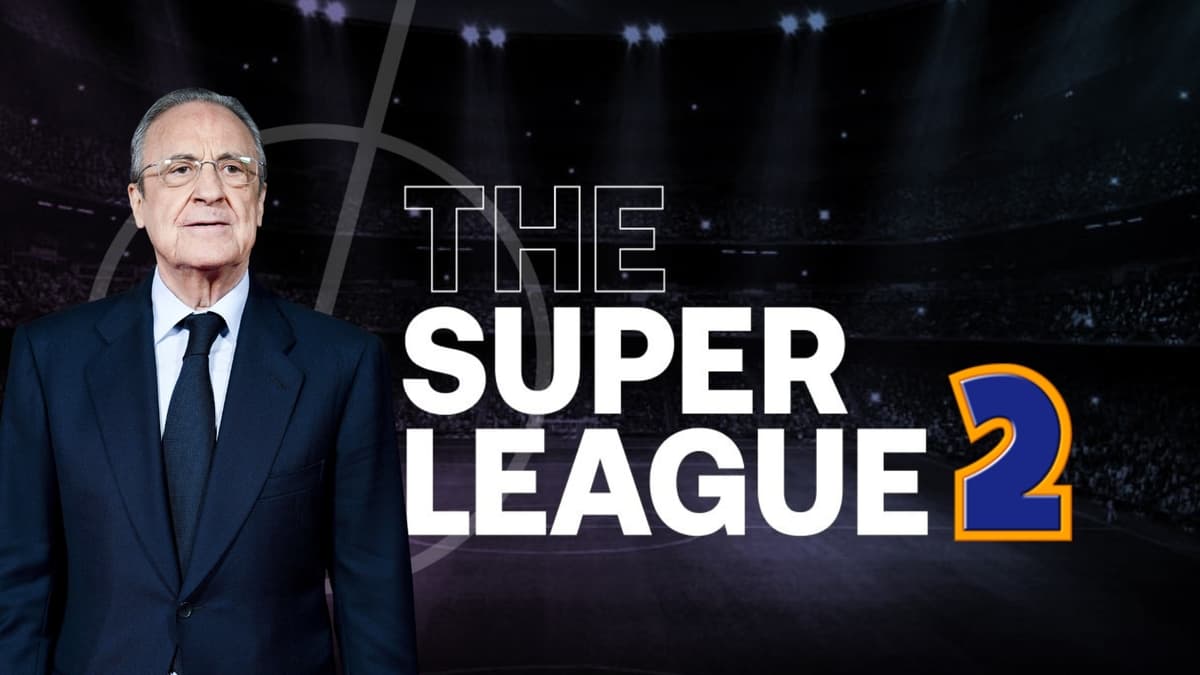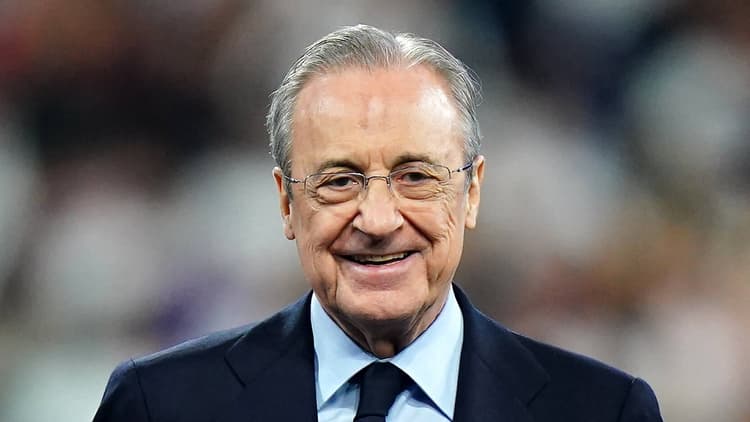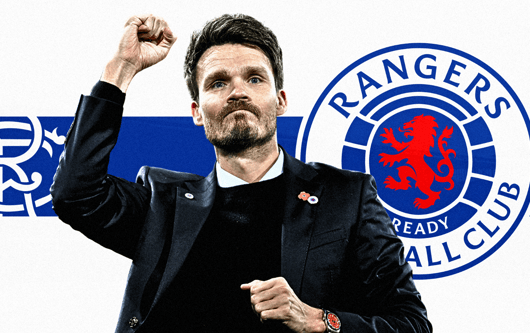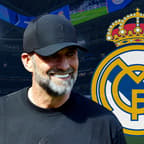-
News
- 1 minutes ago
What is the new European Super League? Format, teams, earnings, reactions

The European Super League has once again emerged as a legitimate possibility and the divisive potential competition could reportedly be launched in September 2026.
The idea of a European Super League has been touted for years, with the biggest clubs on the continent threatening to start their own breakaway league back in the 1990s in order to increase Champions League prize money.
However, it has become a more prevalent threat recently and some of the most influential people in European football are determined to see the proposal succeed.
READ MORE: NEW, BIGGER and RICHER European Super League is launched
The original proposal for the European Super League was launched in 2021, with the plan being to include 20 of the biggest football clubs in Europe in a rival competition to the UEFA Champions League.
Fifteen of these teams would have been permanent members who could not be relegated, while another five would have been able to qualify for the annual tournament.
Real Madrid president Florentino Perez was due to hold the chairman’s position for the Super League, while Manchester United’s Joel Glazer and Juventus’ previous president Andrea Agnelli were announced as vice-chairmans.
READ MORE: What are the most expensive transfers of all time? The 50 highest fees in history
However, the proposal was shut down within days after intense backlash from fans. Protests were held and every club initially involved - with the exception of Real Madrid, Barcelona and Juventus - pulled out of the proposal.
Despite the failure to launch a European Super League back in 2021, A22 Sports Management - the company founded by Real Madrid, Barcelona and Juventus to help with legislation for the ESL - continued to devise new proposals for the competition.
Furthermore, in December 2023 , the European Court of Justice ruled that UEFA and FIFA couldn't legally stop the formation of a European Super League, paving the way for the competition to be created.
A new proposal was soon announced by A22 Sports Management, with radical changes made from the original European Super League format.
The proposal in December 2023 included 64 teams, with three tiers and promotion and relegation each season.
However, the announcement resulted in more fan backlash and clubs were forced to release statements in opposition to the European Super League once again.
A22 Sports Management went away and regrouped and announced their latest proposal (in December 2024) for the European Super League, which has been renamed and rebranded as a 96-team ‘Unify League’.

What is the latest proposed European Super League format?
Unlike the original ESL proposal, the new Unify League will require clubs to qualify for the competition on an annual basis via domestic performance - similar to the current Champions League format.
Unify League would involve 96 clubs divided into four separate leagues - named Star, Gold, Blue and Union.
Star League: 16 clubs, divided into two groups of eight.
Gold League: 16 clubs, divided into two groups of eight.
Blue League: 32 clubs, divided into four groups of eight.
Union League: 32 clubs, divided into four groups of eight.
Clubs would play 14 matches in the league phase of the competition, with seven home games and seven away games.
In both the Star and Gold League, the top four clubs in both groups would progress into the quarter-finals. In both the Blue and Union League, the top two clubs in each group would progress into the quarter-finals.
Quarter-final matches would be played as two-legged ties, with the winners of each qualifying for the semi-final stage.
The semi-finals and finals across each league would be single tie affairs held in neutral venues.
The winners of each league would be named Star, Gold, Blue and Union League champions.
The league stage would take place between September and April, with fixtures played in midweek, just like the Champions League.
Meanwhile, the women’s version of the Unify League would include 32 clubs, divided into the Star and Gold League. They would follow the same knockout pathway as the men’s version.
A22 have revealed that Unify League matches would be broadcast on a free-to-air streaming service with adverts.
A formal start date hasn’t been set, although A22 are eager to launch the Unify League in September 2026.
In addition, the prize fund hasn’t been confirmed, but A22 have reportedly promised £330 million in “solidarity” payments to smaller clubs and countries.
Furthermore, the total prize money is set to exceed the Champions League’s current prize pot fund of £2 billion.
Which teams were in the original Super League?
There were 12 teams who signed up for the original Super League that was launched and dramatically collapsed in April 2021.
| The original European Super League teams |
|---|
| Manchester United |
| Manchester City |
| Chelsea |
| Liverpool |
| Arsenal |
| Tottenham |
| Real Madrid |
| Barcelona |
| Atletico Madrid |
| Juventus |
| Inter Milan |
| AC Milan |
It is understood that Bayern Munich, Borussia Dortmund and Paris Saint-Germain were all invited to be part of the Super League but all Bundesliga and Ligue 1 clubs refused to be part of the breakaway tournament.

All of the teams who were part of the original Super League officially pulled out, with the exception of Real Madrid, Barcelona and Juventus.
These three teams have publicly remained committed to launching a Super League throughout.
When is the European Super League due to start?
It was suggested that the planned launch of the original Super League would have been the start of the 2022-23 season.
The latest proposal - Unify League - could begin in September 2026.
What was the original planned format of the Super League?
The original Super League from April 2021 was due to consist of 20 teams. 15 of those would have been permanent members who could not be relegated. An additional five teams would be able to enter each season.

The format would have seen these 20 clubs split into two leagues of 10 teams. Everyone in those two leagues would have played each other home and away, and there would have been a minimum of 18 European matches played each season.
The matches were due to be played in midweek, and the idea was that teams would still be able to compete in domestic competitions such as the Premier League, La Liga or national cups.
How much will teams earn from the Super League?
It is too early to say how much money will be earned in the new Super League but it is likely to be very significant. One of the biggest reasons for launching a Super League is to give clubs outside of England the financial means to challenge Premier League clubs.
It is claimed that the Premier League has built up a financial monopoly on the European game, due to its astronomical television deals, to the extent that teams from outside of England can no longer challenge for the best players and continental trophies.
There are likely to be some big backers behind the Super League project; for example, JP Morgan confirmed that it would debt finance the original Super League to the amount of £3.5 billion.
In total, it was estimated that each team would make between €275m and €400m per year just from participating in the original Super League, thus trebling or even quadrupling the money made from the Champions League.
It remains to be seen what the figures will be for the new Super League.
What will happen to the Champions League?
The future of the Champions League is very much under threat as a result of these Super League plans.
UEFA's position as European football's governing body will naturally be at risk, as will the power it holds and the purpose it serves.
If there is a European Super League, then the teams who join this breakaway competition would very likely be unable to participate in the Champions League, Europa League or Europa Conference League.

And if many of Europe’s biggest clubs - like Real Madrid, Barcelona and Juventus - don't enter the Champions League, the tournament would be devalued so much that it is difficult to see it thriving. Television and commercial income would naturally plummet in a second-rate tournament.
UEFA’s ‘Swiss Model’ for the Champions League is now in effect, but it has been met with much criticism.
What will happened to the Premier League, La Liga, Serie A and domestic leagues?
It is understood that any teams who join the Super League would still be able to compete in their domestic leagues.
These leagues and the clubs who weren’t invited to be in the original Super League in 2021 were understandably unhappy. The money on offer from the Super League was set to lead to an even greater disparity in wealth between those who are in and out of the breakaway tournament.
It was also believed that Super League teams may take their national leagues less seriously, deploying reserve sides, as they would focus on the midweek games.
These domestic leagues would thus have been devalued even further and like the Champions League, there would’ve been less money on offer from television and commercial avenues.
This would have had big ramifications on the futures of many smaller clubs, with fears it could even drive some out of business.
However, with the revamped Super League promising qualification from domestic leagues, the concerns from 2021 may not be so bad now.
What is the reaction to the Super League?
Outside of England, there is an increasing support among fans around Europe for a Super League.
The key reason for this is the financial power of the Premier League. For example, during the 2023 January transfer window, the Premier League spent €830 million on new signings. This compared to Ligue 1 (€127m), Bundesliga (€68m), La Liga (€32m) and Serie A (€31m).

It has been argued that there is already a Super League in football, the Premier League, with every other domestic league becoming a feeder league.
Thus, a European Super League could help bring back some competitive balance and increase the revenues of teams from non-English leagues.
The fact that the revamped Super League is not a closed-shop has also answered the biggest issue fans had with the original launch.
Plans for the original Super League led to almost unanimous anger from fans. The main complaints were that this Super League was all about money and greed. The idea of there being a closed shop – with 15 permanent Super League members – went against the ideals of sporting competition and it was viewed that it would simply kill domestic leagues and smaller clubs.
The original European Super League was condemned by UEFA and the Premier League, with many more leagues, associations and governing bodies following suit.
Even the UK government and Prince William got involved to condemn the Super League.
Now, however, the new Super League plans include annual qualification for all teams involved.
Why did the original Super League collapse?
There were a number of reasons the original Super League collapsed so suddenly within 48 hours of its launch.
The most important reason was the anger of fans around the footballing world, but especially in England.
There were mass protests by supporters of all of the Premier League big six, with Chelsea fans even refusing to allow their team bus access into Stamford Bridge ahead of their game against Burnley.

Furthermore, several players and managers expressed their negative views on the league, with Jurgen Klopp and James Milner publicly saying they didn’t like it, and Pep Guardiola condemning it: “It is not a sport if success is guaranteed”.
The football community came together as one to prevent the owners from making a decision that the majority simply didn’t want. In the end, it forced the owners of the Big Six to pull their sides out of the Super League, and they were soon followed by Inter, Atletico Madrid and AC Milan.
It must also be noted that the political interference of Boris Johnson’s UK government and by Prince William also played an important role.
Manchester United star Bruno Fernandes even revealed he would have pushed to leave the club had the European Super League proposals gone ahead.



















